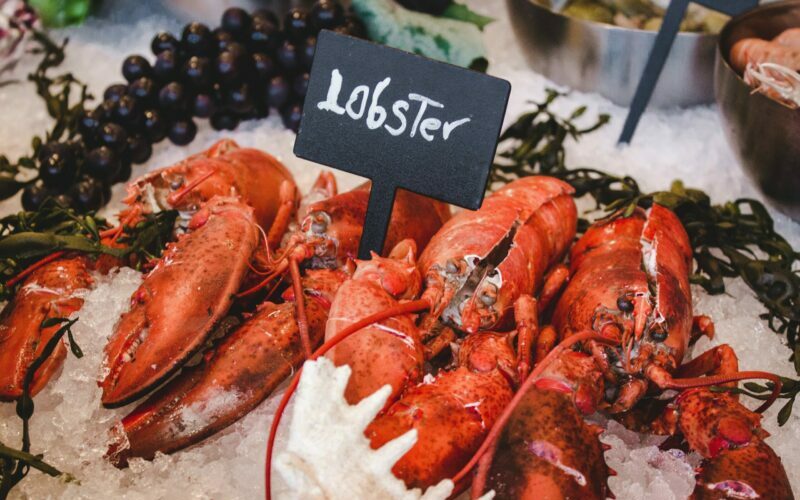
Our crustaceans wilting in boxes dumped by Triad smugglers. A dead police officer. There should be lobster-red faces in Australia.
If China stopped buying our products, we would quickly find alternative markets. That’s what we were led to believe by optimistic politicians and some sections of the media. The Australian lobster tells another story.
The south coast of China has a long history of piracy and lawlessness, and while piracy is a thing of the past the same cannot be said for smuggling, which remains a perennial activity between Hong Kong and the coast of neighbouring Guangdong.
This is a high-stakes business with a great deal of money involved. In the 1970s and early ’80s the snakeheads, as the operators of the smuggling boats were known, would charge large sums to carry mainlanders wishing to flee to Hong Kong, where under the rule at the time they could stay as long as they crossed Boundary Street in Kowloon.
As China modernised, some traffic began to flow in the opposite direction. Televisions, Marlboro cigarettes and other household necessities went north in speedboats. The most high-profile activity was the stealing and then smuggling to the mainland of high-end cars, Mercedes in particular. Given that it takes less than 10 minutes for a high-powered smuggler’s boat to travel across Mirs Bay from Hong Kong onto a secluded mainland beach, this was a very attractive business.
And the thing about smuggling is that it is actually not an illegal activity in the country where the cargo originates. It only becomes smuggling when it arrives at the other end, so the Hong Kong authorities have little in the way of deterrence apart from the diligent marine police who would patrol the waters every night and work to deter the smugglers’ boats, charging them with the export of unmanifested cargo, a slap-on-the-wrist offence.
This led to the speedboats on both sides carrying more and more horsepower. It was not uncommon for a speedboat to have up to 1000 hp of outboard motors fitted to their transom. Furthermore, while the smugglers’ boats were constructed to be able to withstand a severe impact with another boat, the Hong Kong Marine Police responded with faster craft, a couple of floating police stations, and even a bouyed steel cable stretching across the entrance to Tolo Harbour with just a narrow, monitored entrance for vessels to pass.
Among stolen cars, cigarettes, electronics going north, and people coming south, lobsters have in recent years been a significant traffic. Every so often beaches in certain areas can be found littered with styrene boxes containing lobsters, dumped overboard by smugglers fleeting the marine police.
Perhaps unsurprisingly ever since the mainland imposed prohibitive duties on Australian lobsters there has been an extraordinarily large increase in shipment of lobsters from Australia to Hong Kong. The territory is Australia’s largest lobster export destination, according to some reports. No doubt some of these were being consumed by the honest burghers of Hong Kong, who might otherwise have been off travelling places during these Covid times. But the bulk of these lobsters were indeed for smuggling across the border to Shenzhen and this is where it all went horribly wrong in recent weeks.
In late September marine police were conducting routine anti-smuggling patrols off the western part of HK waters when they came across some mainland smuggler boats, known as Da Fei in Cantonese. A chase ensued, during which the Da Fei rammed the HK police boat, which overturned, throwing its crew of four into the sea. The Da Fei, with its reinforced steel hull, escaped. Senior Inspector Lam Yuen-Lee did not surface and her body was found two days later, a casualty of the illicit lobster trade.
Reaction from both sides of the border has been instantaneous. On the mainland side the two people driving the speedboat been arrested, and as the crime occurred in Hong Kong waters they will be transferred to Hong Kong for trial and any subsequent prison sentence. Simultaneously there are reports of a crackdown on any kind of illegal water-based activities along the coast.
On the HK side ramped-up police activities have turned up some extensive illegal cold stores (typically refrigerated 40-feet sea containers) holding huge quantities of meat and other produce including of course Australian lobsters, no doubt on its way to Shenzhen. The most recent haul was apparently worth close to half a million US dollars.
When the PRC first imposed trade bans on a number of Australian products, politicians and media commentators leapt into the fray, spruiking how there were other markets to reap and how Australia didn’t need the PRC market of 1.4 billion people. One therefore wonders what these folks, along with trade officials and others thought was going on in Hong Kong, was it two for the price of one at City’super? Or perhaps McDonald’s was doing surf and turf Happy Meals? Or a special on Food Panda home deliveries? How else to explain a 620% increase in lobster sales to Hong Kong?
Or maybe they knew exactly what was going on but chose to turn a blind eye to what amounts to an illegal activity, choosing instead to claim the glory of “opening up” a remarkable new market. The only documents I have been able to find that casts the slightest doubt about the real basis for the success in new markets is a report from the Australia-China Relations Institute at UTS who uses the euphemism “grey markets” to explain the extraordinary growth in sales outside the PRC. Meanwhile that “grey market” activity has now led to the regrettable and avoidable death of a Hong Kong police officer.
There is a saying that when a butterfly flaps its wings it can cause a hurricane half a world away, it seems likely that the unfortunate death of Lam Yuen-Lee in the line of duty will result in some “hurricane like” effects around the lobster farming communities of Australia.




